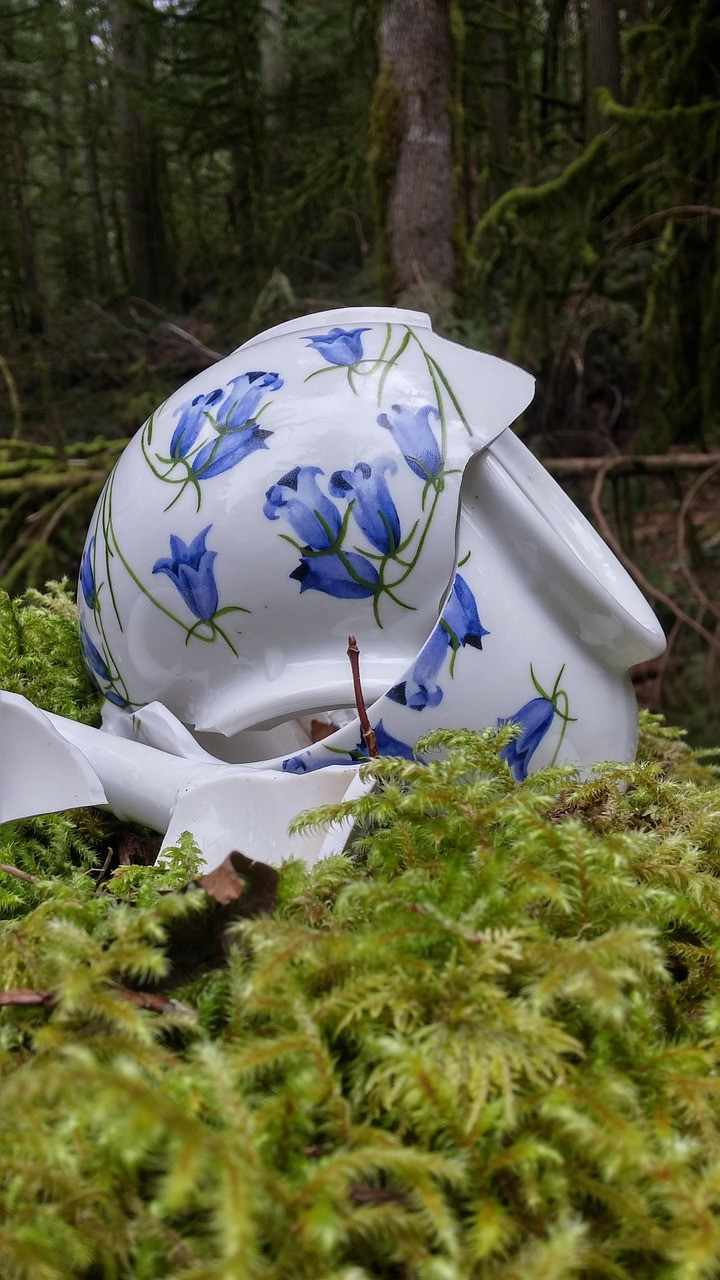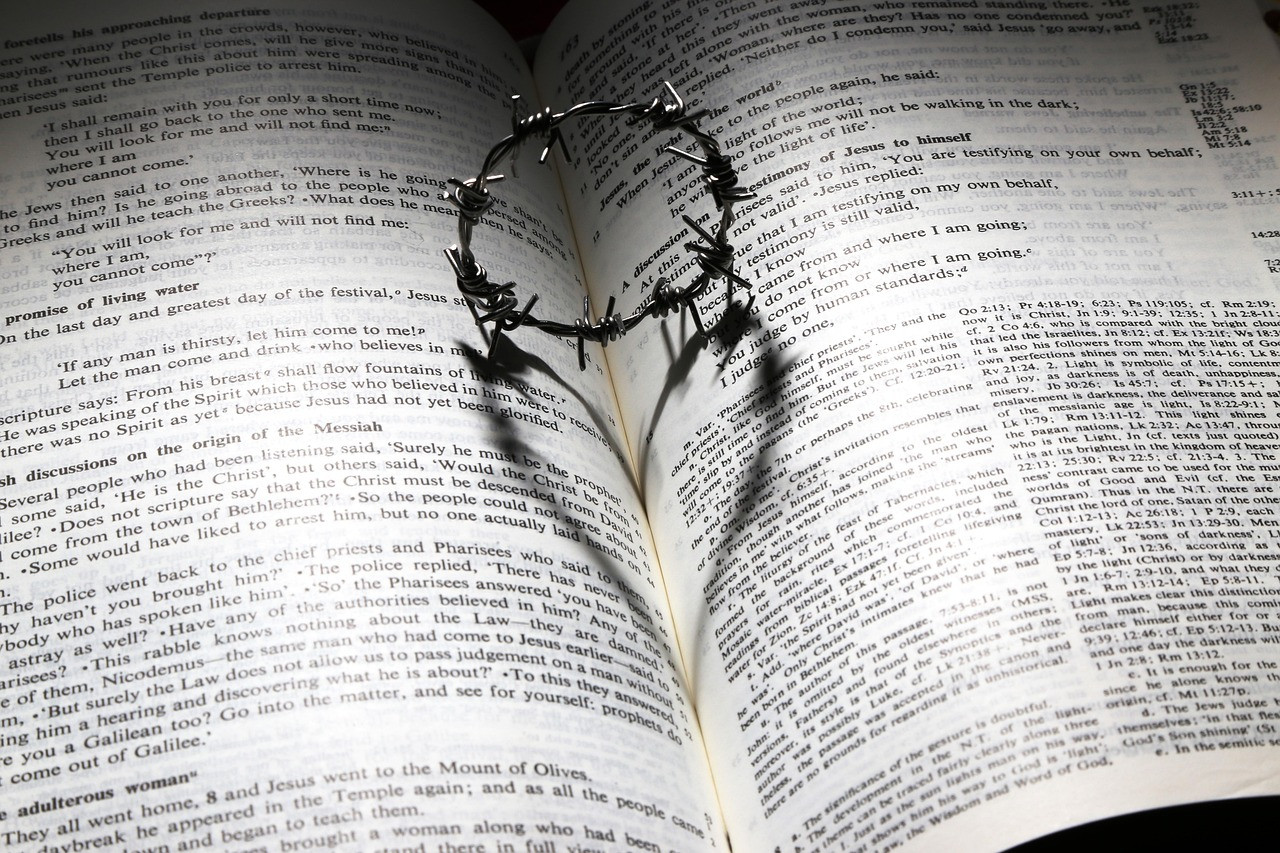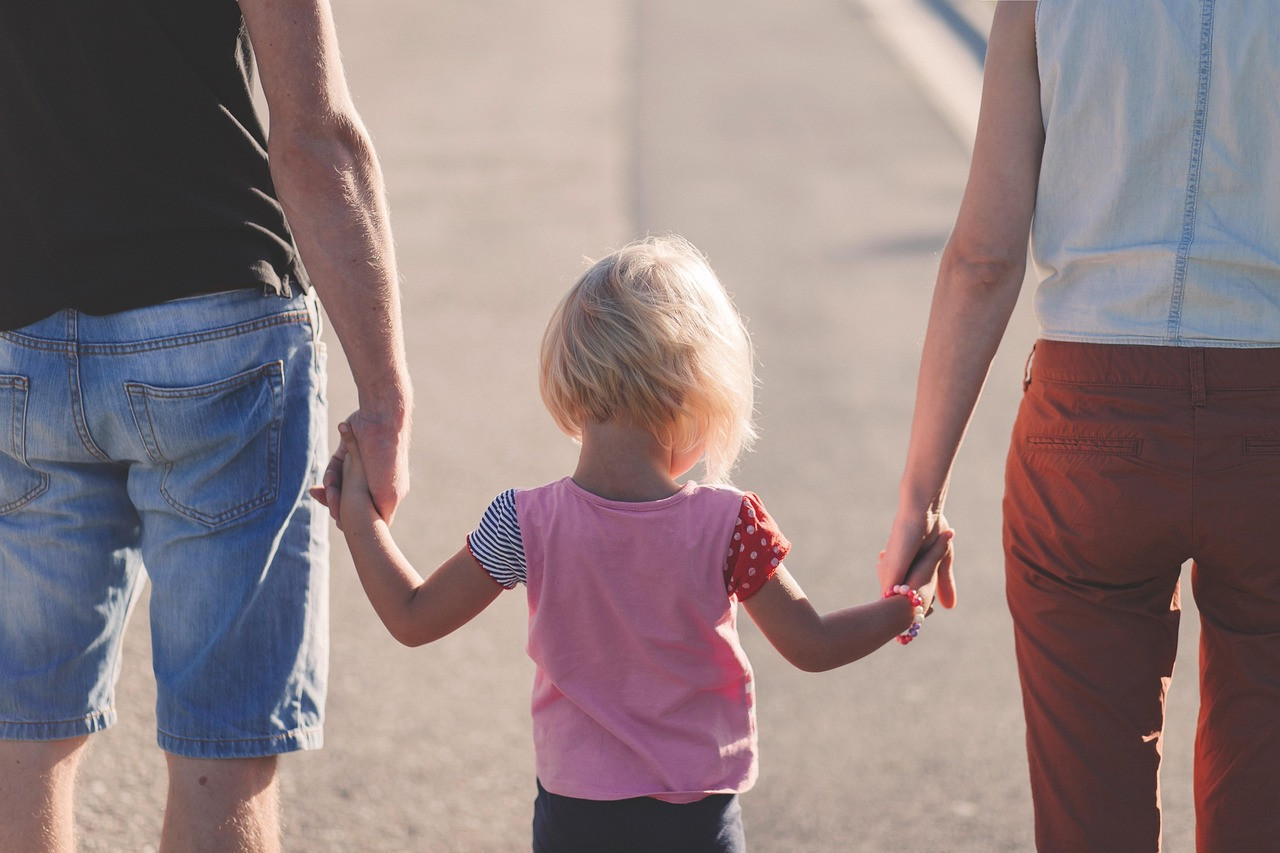So today I'm going to give you four tips for managing your life with a much more relaxed, peaceful, holistic kind of perspective. Knowing the stance that you're coming at life from is really important, and it's important to understand these concepts so that you have the power to interact as you wish in life, rather than being reactive and letting things happen to you such that you need to feel a certain way because something happened or didn't happen, or that your life is at the mercy of certain circumstances or situations. That's not true! Sometimes there are situations beyond our control and sometimes there are things that temporarily we can't get out of, but we have a choice in so much of our lives. How we look at things, the actions we take, the ways that we view things...those are things that are in our power.
So, the other day I did a meditation about having discipline which isn't always pleasant at the time, it does produce righteousness and peace. That is absolutely true. What I said in there was I was planning on going to the gym, and I totally was until I went to an eye appointment, and they dilated my eyes more than I've ever had my eyes dilated in my whole entire life. So, I had my eyes dilated, and my pupils were so big, you could hardly see the color of my eyes when I looked in the mirror, like an hour later, it was that bad. And I just had to sleep like the rest of the day. I kept waking up, trying to see if I could have better sight and more energy, and my eyes weren't having it, my body wasn't having it. It was like, no, this was too much, and you need to go to sleep. So that's what I did. I napped throughout the day. I finally got my second wind towards the evening, but it really knocked me out. As much as I wanted to do things that day, like I had planned, going to the gym right after my appointment, I didn't expect to have my eyes dilated. Even with sunglasses, it was too hard to take care of, so I couldn't drive. Once I got home, it was like, it's not safe for me to be on the road. I can't go to the gym today.
So, did I beat myself up about it? No. I did look back at the episode and wonder if I promised I was going to the gym because I want to be someone of integrity, but at the same time, when I said that I wanted to be disciplined, to go to the gym, that wasn't assuming that I was about to not be able to see or to drive safely. So, I had to give myself grace. And also, I didn't say I was definitely going today, although that was my intention. I had to shift because I had a need that was necessary. It was more present for me to rest my eyes and to not risk other people on the roads nor myself by going with these eyes that were just totally seeing blurry stuff and not able to really focus well. I had to notice my need.
Make Life Less Stressful = Less Anxiety
- You Have Needs! Often as Christian women, we forget that fact or we conveniently push it aside because we're trying to meet other people's needs and we think, that's okay, I can handle this. We push it aside and push it aside. Really, we can't afford to push it aside. So, there are some things that we do need, like to be able to see, to drive, for instance. We need to be able to set the way that we pace ourselves during the day because the way we live each day determines the way we live our lives. When we are able to take control of our schedule, to acknowledge our needs and to sufficiently meet them, as well as to live out the values that we have and what we believe and what we're called to, we can start building a successful life. As Christian women, it's okay to know that we have these higher callings and these higher values and also that we are humans with needs. So being able to recognize your own needs and that you don't have to apologize for that. I'm bringing it up today as an example. But I didn't have to come on and say, hey, I actually didn't go to the gym on Monday because I wasn't lying. I wasn't doing anything that didn't have integrity to it. I simply had a different set of circumstances come up that made that not the course of action I thought I was going to take. I wouldn't have to owe an apology or explain myself or anything just for meeting my needs. There's nothing wrong with meeting my needs. I had to rearrange some things with my kids, too, that I had planned and that I had said, yes, I would do, and then I just couldn't physically do, and that's okay. We have to realize that our yes being yes and our no being no is absolutely integrity and biblical. There's also truth to the fact that there are things that, when we said yes or no, may have come up that we weren't considering at the beginning. If we can follow through, great, but something like being unsafe simply to keep our word and put other people at risk would not have been wise. So, we're talking about these real needs that, just as human beings, they do come up, sometimes conveniently, sometimes inconveniently, and we need to be aware that, wait, there's a real need here that I have right now. I am grateful for grace, and I am grateful for God's kindness and His understanding. If it weren't for this, I would have gone to the gym. I would have kept those appointments with my kids, but this was basically an emergency, and the need was that I take care of what I had right in front of me that needed to be done because it was urgent and it was important and it was necessary, and it was wise and it was safe, and it was good for all concerned. I want you to think about those things in life that you need because they're good for all concerned. The things that you need that are good for all concerned. You need to be able to be healthy or to the best of your ability, because if you don't have your health, your physical health, your mental health, your emotional and spiritual health, that is something that rubs off on others and affects them. Just as if I had driven with those dilated pupils, it would have affected other people, for sure. Not only me, but we often think, oh, I'm just sacrificing my own comfort, my own needs, and that's okay. But I want you to really flip it and see how when you minimize the fact that you have actual needs, you're actually potentially hurting other people, spilling your stuff over into their lives, causing them to have hardships because you didn't take responsibility for your own stuff. So, the first thing is to recognize your own needs.
- People don't have to understand for it to still be okay, to recognize that you have needs. So, to make up for not going to the gym today, I went to the park, and I walked for my half hour because that's my goal, is to walk for half an hour. I walked, and it was beautiful, and it was a great time, and it was refreshing, and I had time with the Lord, and I had time to think. As I was walking, I passed a woman who did not want to talk. The way that I knew that she did not want to talk is on both passes. coming and going, we were at a place where we passed each other, and on both passes she put her head down, walked a bit away, and she had sunglasses on, and she was not engaging. Both times I was willing to say hi. She was not engaging. There were other people that I passed who looked right at me, "Hi, or how you doing?" Really nice greetings. I'm not judging the woman who had her head down. She most likely had needs. Maybe they were to not have to extrovert, not put herself out there for people because she's been having a house full of company all week. Or maybe she just got sad news and needed to walk it off. Or maybe this was her time to pray and she wasn't paying attention to what was around her. I don't know. For whatever reason, she needed not to engage with the people walking by her. And that's okay. I didn't need to understand why. I just needed to allow that she may be somewhere else than where I am on the journey. She was walking, and I was walking, but where she was on her journey was a place where she wasn't capable or choosing to speak to anybody else. On my journey, I was in a good place where I was able to do that. I was able to reach out, and whoever wanted to say hi, I was able to do that. But there have been times where I have not been in that place. And it wasn't necessarily because I wanted to be mean or rude or unfriendly, anything like that. It was because I wasn't in that place. We're all on our own individual journeys, and to be able to honor that for ourselves as well as for other people is really important, because no one gets through this life on the exact same path. Every person has a unique path. And you have no idea. I have no idea. Only God knows what a person is fully experiencing, even of ourselves. We don't know what we're fully experiencing. Haven't you ever prayed and found clarity after you've prayed? All of a sudden stuff the Lord knew and was able to reveal things that make so much more sense than what you could figure out in your own mind? I know I have. And that's the kind of thing that we need to realize. None of us has the corner on all of this knowledge, but God does. So, if somebody is not aware of where you are on your journey or you're not aware of where they are on theirs, that's okay. Out of those values of being Christlike, caring about people, loving people, serving people, it's okay to do those things, to pray for them, to see if you can help someone. Also, maybe you're the one who needs help sometimes. Maybe you're the one who needs someone to minister to you. Even Jesus took time to step away to rest and pray. He had so much that he was doing as both human and God on this planet when he walked around in a human body, and he took time away to meet the needs that he had with himself and the Lord. So why would we be any exception? So, allowing that grace to ourselves and allowing that grace to others is really important. Another is the needs, and then the other is that others don't have to understand.
- Other people do not have to understand where you are on your journey for your journey to be valid; you don't need to be validated. How many times I've heard these people on cooking shows and such, oh, I won this. It was such validation. Well, yeah, it probably is, but is that validation really needed? If it is, then there's some work that could possibly be done inside to know that, wait, I'm validated by God, or I'm proud of myself. External validation does feel good; I'm not going to deny that, but people don't necessarily need that validation if they have it from God and from within themselves. Sometimes you're not going to get that validation from the people around you. Sometimes they will not understand. They won't get it because they've not been on your journey, and you can't expect that they can get it or that it means they don't care. It doesn't necessarily mean they don't care, or they don't love you. It may just be they honestly, in their capacity, do not understand. That doesn't change the fact that you do have needs, and you don't need to have people understand you for those needs to be valid.
- It's important be flexible as well as have a routine. When I was in college, I went to Messiah College before it became so big and became a university. I still have a hard time calling it Messiah University because it's like Messiah College, and that's the point. It's a small, private, liberal arts Christian college in Pennsylvania. It's no longer so small, and it is now a university. During my time at Messiah, we had a class called life fitness, and life fitness was where we had to track how much exercise we did during the week. During the semester, we would track types of exercise, and today, as I was walking, that half hour walk that I'm trying to set into a routine, you're catching the theme here of I'm on my journey, doing what I need to, to take care of my own health, my own wellness, to continue to be true to the routine and the commitments I've set to work to be healthy, to take that time for my physical body as well as spiritual and mental, because all of that works together. I feel better when I'm out in the fresh air as well or go to the gym. So, the emotional, too, it's a really healthy thing to do. I have set an intention, a commitment, and now I'm trying to set a routine around this. And at Messiah, they had us learn how to make it life fitness. It wasn't gym class. It was life fitness. It was something that could be incorporated into our lives, so that it was sustainable. And as I was walking today, I'm thinking, they knew something. These people, these professors in this life fitness class knew something, and they taught it to me. Now, I haven't used it much over the years, only periodically, but it really hit home today where I realized there were people who knew how this worked. They knew that if you set up a routine to do something physically that you enjoy, and I happen to like walking, that it is something you can stick with. It can be a part of the habits, the acts, the things that you do on a day-to-day basis or a weekly basis or whatever makes up the quality of your life.
Being able to meet those needs, set up a routine, carve out time for yourself, your needs, whether other people understand it and validate it or not, allowing awareness that other people are not necessarily where you are on your journey, are those things that I wanted to talk to you about today.
Think about These for Yourself:
- What are the needs that you have?
- Are they being recognized by others, or are others incapable at this point, of recognizing those individual needs? And is that okay? Are there still things that you are committed to, things that you will find a way to get met because they're healthy and important, godly, set according to your values or your needs, or your health goals, or whatever it may be?
- Are you able to hold space for yourself and where you are, as well as where someone else is on their journey?
- It is important to be able to be flexible. We're not saying to say sin is okay, but we're saying to have grace and to be flexible, because things come up and people aren't always where we are, we're not always where we expect to be.
Just like I expected to be at the gym the other day, and instead I ended up on my couch with my eyes dilated, having that ability to go with the flow and really just have an open mind for other possibilities of good things when needed. Such as I can meet my needs and someone else can understand and have grace with me, that something was a more urgent need, and if I didn't meet it, it would have caused more problems than good. Again, that's not saying don't let your yes be yes or your no be no. That's simply saying that when we make our yes's and no's sometimes in our humanity, we don't see the whole picture. God does, and He knows our hearts. And as we set our journey in line with God and we do our due diligence to steward, well, whatever the circumstances are, whatever the walk of life is today that you're on, you can steward it step by step with God's help and recognizing that it's okay to have needs to notice them, to notice other people's needs, to understand when you can meet them and when you can't, what you're called to do and what can be left to someone else. An awareness that we're all just trying to do the best we can with what we have and how we see it and how we know how is a really important way to be able to gain flexibility and a sense of ease in life. It doesn't always have to be only this one way. There are so many things in life that are variable.
Go take on the day!
Today we're talking about the trauma recovery journey. The trauma recovery journey and how you can actually think more positively even when your thinker is not very clear. So, remember that trauma is a wound. Trauma is a painful past learning experience. It means that something happened that was not optimal, and it impacted you beyond your ability to have the resources that you needed to take care of it. When we are recovering from that, we miss out on knowing that we survived because our system gets so focused on making sure that never happens again.
Are Your Coping Skills Working?
That scary thing that felt like we wouldn't survive, that it puts up amazing scanners under the scenes that say that will never happen again. And then we come up with all kinds of coping skills, whether helpful or not helpful, to prevent the very thing that hurt us. And then those coping skills end up hurting us, so they don't work. They worked for a time, or they worked for a developmental stage or when we were kids, we thought they worked, but then as adults we run into things where they don't work and then we're kind of left wondering what in the world to do next?
You Already Survived!
Today, I'm going to help teach you how to think as you are recovering from trauma. Maybe you've been in therapy for a while and you're like, but when I hit this pain point again, I thought I had already worked through it. I thought it had already healed. I don't understand why I'm spinning my wheels again. And I want to tell you, you're not. And when you think, why am I not able to get past this? I still have to keep working and trying to get past this, I want to tell you that you are. So, you are getting past it. You are doing the work. Just because something is familiar and because it may be the way it feels, it does not mean that you're not progressing. It does not mean you haven't survived. It does not mean that hope isn't right there with you or that healing isn't completely on the horizon.
Now, I can't promise complete healing in everybody's circumstances all the time. But when you really do the work, you will then have the tools to be able to keep on the path towards healing and it will get smoother as you go. You don't need to still survive. You don't need to try harder to survive. You already have survived. Now you need to basically pick yourself up when you wobble. It's not that you're still surviving, it's that your system doesn't know it already did.
It's Like Riding a Bike
I want to give you the analogy of a bike ride, okay? If you're on a two-wheeler, you're a kid, you've learned how to ride a two-wheeler and you've crashed, and your bike is toast. I mean, you're banged up, your knees are skinned, your bike got all bent, your tires flat, everything's a mess. You don't want that to ever happen again. So, the next time you get on your bike, your new bike, you start to wobble a little bit because you remember, uh-oh, I fell last time, yet you keep going. You may have to stop and go to one side and kind of catch your balance with one leg down while you hold the bike against you. Then maybe you get back up and you try again and keep going. But every pedal, every time you push the pedal around, you are further on in the process of getting back on the bike and getting away from the experience of the accident. You survived your bike accident, and now you're on your way to a wonderful ride. If you keep thinking, I have to survive an accident, I have to survive an accident, you take away the power of the ride that you're already on in your bike. Now, does that mean you'll never wobble? No, of course not. Does that mean you'll never skin your knee again? Of course not. Does it mean though, that you're going to completely crash and lose your bike and never be okay again and break all kinds of bones? It doesn't mean that either. What happened to you in that first bike crash is over. If you have a new bike and you're pedaling, you survived it.
Now it's a matter of maybe carrying some extra tools with you. Maybe you want to wear your helmet when you ride your bike. Maybe you want to have some knee pads. If you wore ten knee pads on each leg, that would be overkill and that would cause more of a problem than it would help you. See, your coping skills can be out of proportion to what you need them to be. So, in what ways are you trying to protect yourself that are actually getting in the way now? But there's nothing wrong with maybe carrying with you some quarters to put in an air machine at a gas station so that you can pump up your tire if it gets a little low and that's what's causing the wobble. Or maybe to put a little basket on the bike that has a bottled water in there because you might get thirsty and that might help keep you hydrated while you pedal. When you have things that are helpful, you just pull out the tool that you need. Maybe carry a Band-Aid in your pocket in case you need to slap one on. If you do fall and skin your knee, it's not buying a whole new bike again and recovering from that huge crash you had. You've already done that. You're already on your new journey. You may need to have some tools in your toolkit that will help you to optimize when you wobble and fall. But it doesn't mean it's a catastrophe. Taking you back to that catastrophe that you had had that big wound trauma that put you on your guard and wanted to make you put every elbow, knee pad, helmets to the extreme on you. No. Just use caution. Be wise, look out for potholes, keep pedaling, enjoy the new journey. You're already on it.
Traumatic Memory Vs. Chronological Time
I wanted to encourage you with that because that's the difference between traumatic memory and actual chronological time you are present, you were hurt, you might still feel like you have a black and blue mark or a few of them, and you don't want them to get bumped. Again. Totally understandable. But if and when they get bumped, you can tend to them with compassion and care, or find others now who can tend to them with compassion and care. And you can process and heal because you survived that initial catastrophe. And the way I know that is because you're here now. You would not be if you were in immediate survival danger. Using your logic, maybe having some sips of coffee while you read. If you were really in fight or flight danger right now, a survival mode, you wouldn't be reading and thinking about how this applies to you. So, you have survived 100% of the things that you've been through. If you're still bruised, it's because you were wounded. And if you're still feeling those spots are tender, then tend to them. Comfort them, get them the support they need, the healing, the processing. But please don't mistake that you are no longer on the journey of the trauma. You are on the journey of recovery from that trauma. When you can acclimate to present time and space, it helps you to realize that you are no longer powerless, that you have power.





